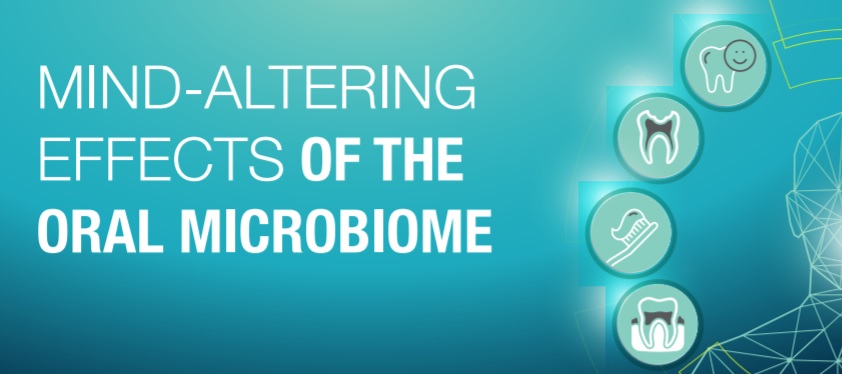Oral health shown to affect many other areas of the body – mind, heart, depression, anxiety and more …
It is well established that the pathophysiology of psychiatric disorders involves uncontrolled inflammatory processes. More recently, it has been discovered that inflammatory proteins associated with periodontitis may exacerbate or increase susceptibility to mental health disorders.
Evidence mounts linking mouth microbes with mental health
A meta-analysis which included 19 studies and 334,503 subjects revealed a significantly increased risk for dental decay and tooth loss in individuals with anxiety and depression. Moreover, panic disorder was correlated with a higher risk for periodontal disease. Remarkably, the likelihood of having periodontal disease was 50 times greater in patients with severe mental health issues, such as schizophrenia and bipolar disorder.
Depression-periodontal disease bidirectional correlation
The mechanisms connecting depression and periodontal disease are multifaceted. In major depression, overactivation of the hypothalamic-pituitary-adrenal (HPA) axis occurs, accompanied by a heightened release of glucocorticoids. This has immunosuppressive effects, thereby increasing susceptibility to periodontal infection and exacerbating existing periodontal disease.
Correspondingly, periodontal disease is associated with increased systemic inflammation, namely elevated levels of interleukin-6, tumour necrosis factor alpha, and C-reactive protein. This may exacerbate inflammatory and oxidative stress processes, augmenting vulnerability to depression. Additionally, psychosocial effects of periodontal disease (e.g. embarrassment, shame, loneliness and isolation) may predispose individuals to depression.
Panic disorder as a causative factor for periodontal disease
Research indicates that the probability of having periodontal disease in individuals with panic disorder is three times greater than those without the disorder. While this is partially attributed to tobacco use, the remaining causative factors are yet to be elucidated. Some hypotheses suggest that panic disorder may lead to neglect of oral hygiene, an unhealthy diet, and downregulation of the cellular immune response, ultimately promoting periodontal disease.
Oral pathogens may contribute to Alzheimer’s disease
Periodontal pathogens such as Treponema denticola and Porphyromonas gingivalis may be implicated in the development of Alzheimer’s disease. Periodontal pathogens may translocate from the mouth to the brain via the bloodstream or peripheral nerves, activating localised neuro-inflammatory responses. This triggers Alzheimer’s disease initiation and progression. Furthermore, several proinflammatory cytokines associated with chronic oral infection increase the congregation of inflammatory mediators in the brain, leading to confusion and dementia.
Needless to say, the mind-altering effects of the oral microbiome are far reaching. Similarly, it is clear that mental health disorders increase vulnerability to oral microbial dysbiosis and subsequent disease. Examination of oral health offers another clinical perspective when developing comprehensive treatment protocols aimed towards improving mental health.
—————————————————
Source: BioPractica – Education Resources

